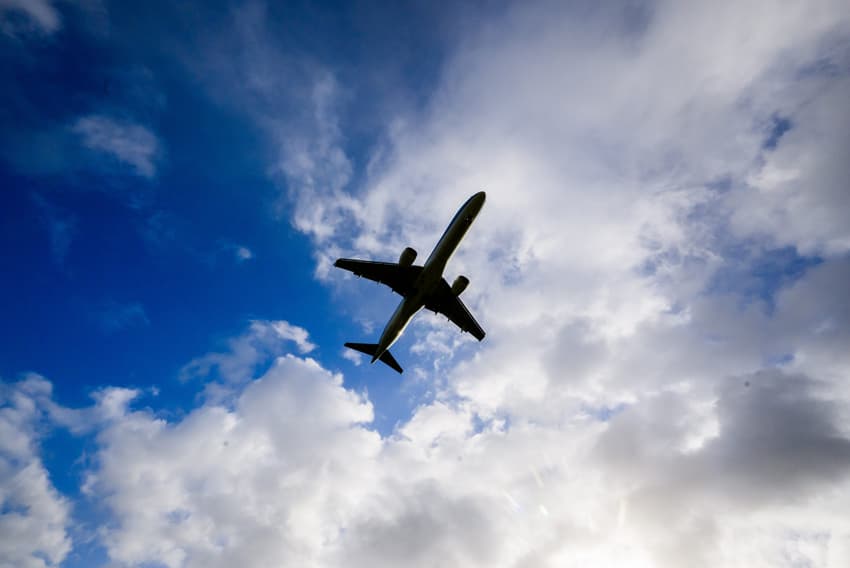Germany to relax travel restrictions for summer

Germany is set to significantly ease its travel restrictions to enter the country from June 1st until the end of August, Health Minister Karl Lauterbach said.
The so-called 3G rule applies to anyone entering Germany from abroad - and it means travellers over the age of 12 have to show proof of full vaccination, recovery from Covid or a recent negative test.
Travellers who are transferring at an airport in Germany also have to present proof of their Covid status before arriving in the country. This applies both to non-Schengen transit from or to third countries outside the EU and to transit from or to Schengen states.
However, Health Minister Lauterbach said he planned to temporarily ease this rule from June 1st due to the falling number of Covid infections.
"Until the end of August, we will suspend the 3G rule on entry," he told the Funke Mediengruppe newspapers.
However, the rules for people entering Germany from so-called 'virus variant areas' will remain in force. They have to go into a 14-day quarantine on arrival, even if they have been vaccinated or have recovered. However, no country is currently designated as a virus variant region.
Lauterbach said: "When such areas are defined, people entering the country have to go into quarantine. Even with lower incidences in the summer, we must remain cautious in the event of a global pandemic."
Travellers should keep an eye on any risk-level changes to countries they are travelling to Germany from on the Robert Koch Institute’s risk list.
READ ALSO: How Germany’s travel rule changes may affect your holiday plans
Change expected on vaccines
The amendment to the Covid entry regulations was passed by the federal cabinet on Wednesday.
It also provides for another change - in future all vaccines approved by WHO, not only those approved by the EU, will be recognised upon entry to Germany.
Under the current restrictions, you have to be fully vaccinated to enter Germany if you are coming from most non-EU countries. Unvaccinated people are not allowed to enter unless they have an essential reason.
Germany does, however, allow unrestricted entry for people coming from a small group of ‘safe list’ countries.
This regulation does not apply to German and EU residents.
The Local has asked the German Health Ministry to clarify if the rule on entry from non-EU countries will remain in place.
Meanwhile, it is worth remembering that the 3G entry rule on coming to Germany still applies until the end of May. Before entering the country, people have to upload or show their Covid documents (proof of vaccination, recovery or a negative test) while checking in or before boarding.
Comments
See Also
The so-called 3G rule applies to anyone entering Germany from abroad - and it means travellers over the age of 12 have to show proof of full vaccination, recovery from Covid or a recent negative test.
Travellers who are transferring at an airport in Germany also have to present proof of their Covid status before arriving in the country. This applies both to non-Schengen transit from or to third countries outside the EU and to transit from or to Schengen states.
However, Health Minister Lauterbach said he planned to temporarily ease this rule from June 1st due to the falling number of Covid infections.
"Until the end of August, we will suspend the 3G rule on entry," he told the Funke Mediengruppe newspapers.
However, the rules for people entering Germany from so-called 'virus variant areas' will remain in force. They have to go into a 14-day quarantine on arrival, even if they have been vaccinated or have recovered. However, no country is currently designated as a virus variant region.
Lauterbach said: "When such areas are defined, people entering the country have to go into quarantine. Even with lower incidences in the summer, we must remain cautious in the event of a global pandemic."
Travellers should keep an eye on any risk-level changes to countries they are travelling to Germany from on the Robert Koch Institute’s risk list.
READ ALSO: How Germany’s travel rule changes may affect your holiday plans
Change expected on vaccines
The amendment to the Covid entry regulations was passed by the federal cabinet on Wednesday.
It also provides for another change - in future all vaccines approved by WHO, not only those approved by the EU, will be recognised upon entry to Germany.
Under the current restrictions, you have to be fully vaccinated to enter Germany if you are coming from most non-EU countries. Unvaccinated people are not allowed to enter unless they have an essential reason.
Germany does, however, allow unrestricted entry for people coming from a small group of ‘safe list’ countries.
This regulation does not apply to German and EU residents.
The Local has asked the German Health Ministry to clarify if the rule on entry from non-EU countries will remain in place.
Meanwhile, it is worth remembering that the 3G entry rule on coming to Germany still applies until the end of May. Before entering the country, people have to upload or show their Covid documents (proof of vaccination, recovery or a negative test) while checking in or before boarding.
Join the conversation in our comments section below. Share your own views and experience and if you have a question or suggestion for our journalists then email us at [email protected].
Please keep comments civil, constructive and on topic – and make sure to read our terms of use before getting involved.
Please log in here to leave a comment.